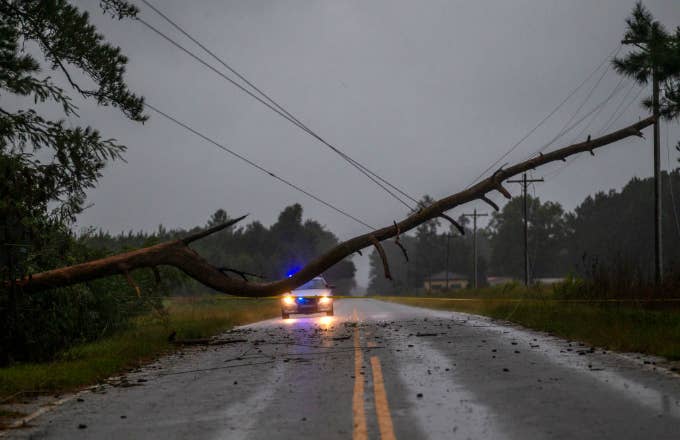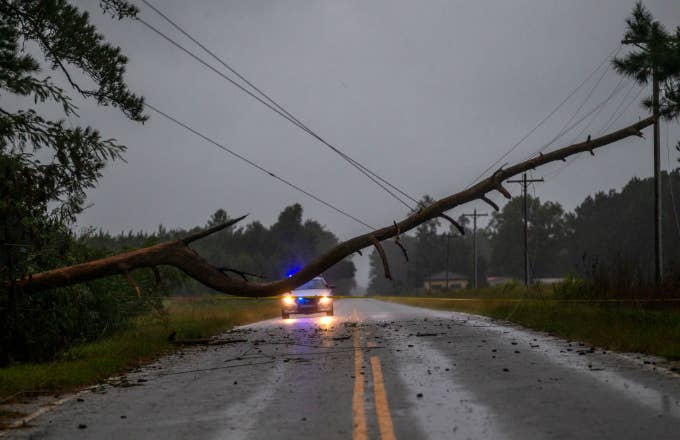
UPDATED Sept. 16, 10:18 p.m. ET:The New York Times reports the death toll caused by Florence has risen to at least 14 people as of Sunday morning. The storm has since downgraded to a tropical depression but it's continuing to head west and is expected to bring heavy rainfall and flooding to Charlotte, North Carolina throughout Monday.
See original story below.
Seven people have died since Tropical Storm Florence landed in North and South Carolina, reports Al Jazeera.
The death toll includes a mother and infant in North Carolina who were fatally injured when a tree fell on their home. Florence was originally a Category 1 hurricane but has since been downgraded to a tropical storm. However, it has proven to be just as vicious. The tropical storm has left nearly one million people without power in the Carolinas.
"Currents of water are flooding homes, covering roads and sweeping away cars," said North Carolina Governor Roy Cooper in a press statement this afternoon. "They are dangerous and destructive. Stay off the roads in most parts of North Carolina. Don't make yourself someone who needs to be rescued."
He continued: "All roads in the state are at risk of floods. Roads you think may be safe can be washed away in a matter of minutes. Just a few inches of water can sweep your car away. Pay close attention to flash flood warnings."
North Carolina's Department of Transportation Secretary, Jim Trogdon, added that he's "never seen flash flooding like this" in North Carolina.
In the meantime, North Carolina's official emergency organization is urging residents to go to ncdps.gov/florence to check whether their area requires mandatory evacuation or is suggesting voluntary evacuation. They also say if anyone decides to leave to make sure the roads near them are safe by visiting drivenc.gov. For those who cannot evacuate, Governor Cooper says "rescuers are reaching flooded areas by boat and air, taking hundreds of people to safety."

